 Note: This post is rated PG-13.
Note: This post is rated PG-13.
People who say the Bible is boring probably need to forget everything they have ever heard about the Bible and begin to read it as the masterpiece of literature that it is.
We are so used to reading the Bible as a “Holy Book” that we often fail to see how humorous and delightful it can be … even, at times, scandalous and bawdy.
I was recently reading through a commentary on Judges and was struck by the sexually suggestive imagery of the song of Deborah and Barak in Judges 5.
The Song of Deborah in Judges 5
The Song of Deborah and Barak in Judges 5 sounds a bit like a drinking song one might have heard in an Ancient Near Eastern bar frequented by fighting men.
The Song of Deborah is definitely not a “church song.”
After contrasting Israel’s God with the fertility gods in that region (Judges 5:3-7), and giving a shout-out to all the tribes that participated in the battle (Judges 5:14-18), Deborah and Barak recount the highlights of the battle (Judges 5:19-23), and then focus on the victorious blow, when the woman Jael defeated General Sisera in her tent.
Here is where the song of Deborah gets quite sexually suggestive. You can almost hear the soldiers whooping and hollering as Deborah and Barak sing this explicit song. Rather than lay it all out for you, let me simply quote from Chisholm’s translation of the song of Deborah in Judges 5, and you can fill in the details for yourself:
Her hand reached for the tent peg,
Her right hand for the workman’s hammer;
She “hammered” Sisera,
…
Between her legs he collapsed,
He went limp, he was lifeless;
Between her legs he collapsed, he went limp …
(Judges 5:26-27)
 Later in the song, Sisera’s mother is seen to looking out the window, wondering what is taking her son so long to come home, and her maids basically say, “Most likely he is out raping women and grabbing for their clothes; don’t worry, he’ll be home soon” (Judges 5:28-30). Little does she know that in taking women for himself, his life has been taken by a woman.
Later in the song, Sisera’s mother is seen to looking out the window, wondering what is taking her son so long to come home, and her maids basically say, “Most likely he is out raping women and grabbing for their clothes; don’t worry, he’ll be home soon” (Judges 5:28-30). Little does she know that in taking women for himself, his life has been taken by a woman.
The song of Deborah seems to be full of irony and sexually suggestive imagery, not the sort of song you usually hear in church.
The Song of Deborah and the Hebrew Text
Of course, if you check some of the traditional translations of the Song of Deborah in Judges 5, the imagery is not as obvious (e.g., in the NIV and NASB), and having looked up the Hebrew text for myself, I am not actually certain that the above translation is best. But Chisholm is a Hebrew expert, and who am I to disagree?
For all I know, Chisholm meant nothing of the sort, and I just have a mind that is in the gutter so that I read things into the text that are not there…
Any Hebrew scholars want to weigh in on this translation of the Song of Deborah?
Regardless, these sorts of things are in the Bible (The Song of Solomon, for example), and no, these are not the sorts of observations you usually hear from the pulpit.




 All three of my girls are currently reading
All three of my girls are currently reading 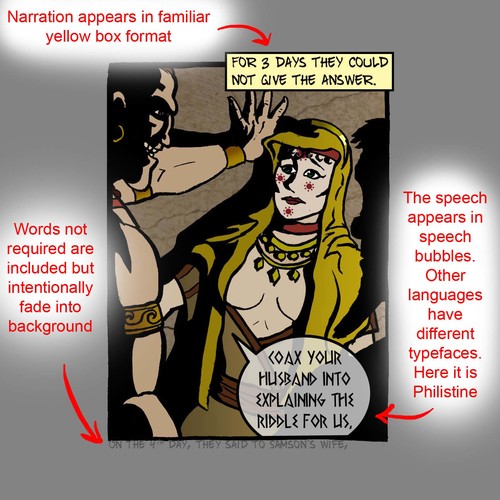
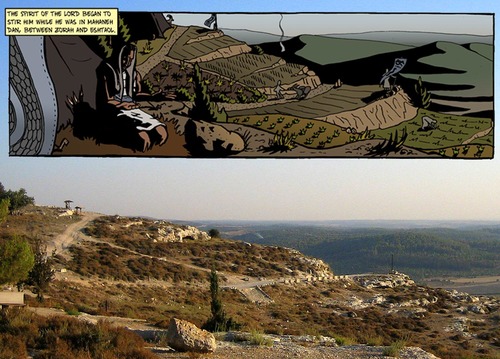
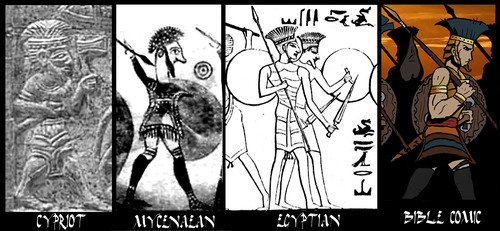
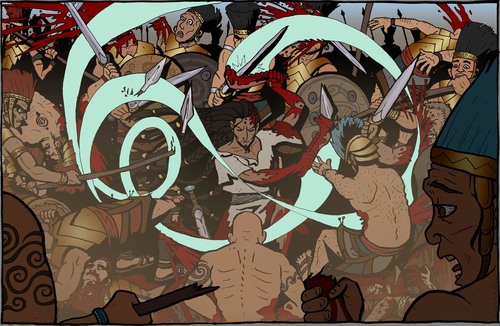
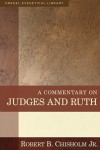
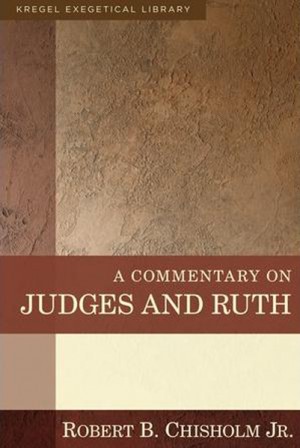


 The Jesus I read about in the Gospels has compassion on the multitudes when they are hungry. Would this same Jesus give praise to God if He were on the boat with Noah while mothers and babies screamed on the outside as they were dragged to a drowning death?
The Jesus I read about in the Gospels has compassion on the multitudes when they are hungry. Would this same Jesus give praise to God if He were on the boat with Noah while mothers and babies screamed on the outside as they were dragged to a drowning death? 
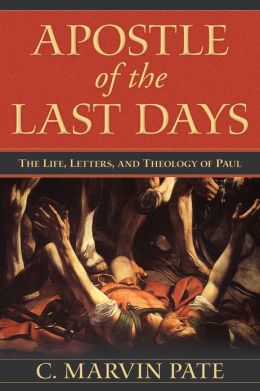
 Both the Jews and the Romans had hopes and dreams for what would happen at the end of days. Pate shows that Paul wrote to reveal how Jesus fulfills and completes these hopes and dreams.
Both the Jews and the Romans had hopes and dreams for what would happen at the end of days. Pate shows that Paul wrote to reveal how Jesus fulfills and completes these hopes and dreams. 